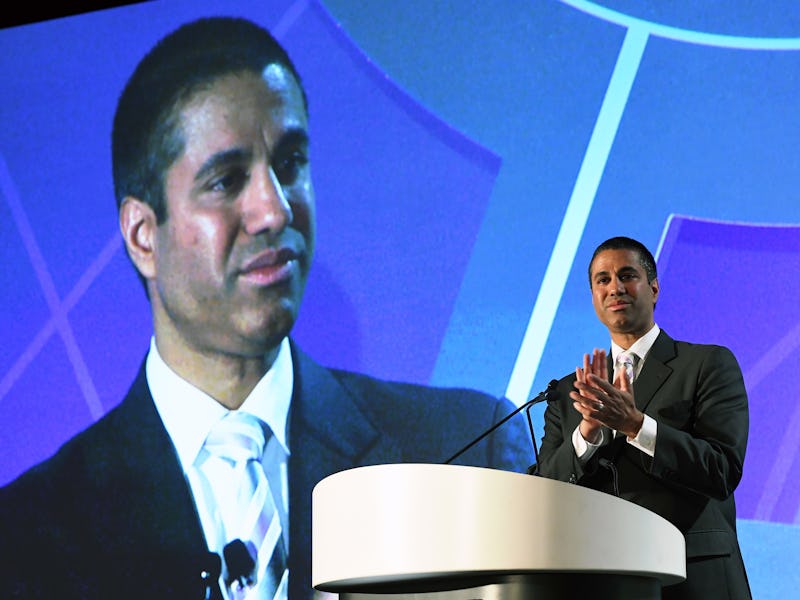Trump’s FCC Chair Has a Very Specific Complaint About Obama
He wants to turn back the legislative clock a few years.

Ajit Pai, President Donald Trump’s new FCC Chairman, wants to make some changes to the current legislation governing telecommunications and net neutrality. Chief among those changes: deleting the President Barack Obama-backed 2015 FCC ruling that classified broadband internet as a “common carrier,” ensuring that private telecommunications corporations treat all internet data and access equally, regardless of the content or user involved.
This week, Pai sat down with Recode’s Tony Romm to explain his current views on net neutrality, including his opposition to the Obama-FCC’s 2015 ruling (which he voted against).
The FCC is a bipartisan commission, and Pai, a Republican, was nominated and confirmed to serve his first five-year term in 2012 under Obama. After Trump elevated Pai to chairman in January 2017, he announced that he would renominate Pai for another five-year term in March of the same year (but Pai will have to be re-confirmed by the Senate first). During his time in office, Pai, a lawyer who previously worked as an Associate General Counsel for Verizon Communications, has favored less regulation on telecommunications companies.
In short, Pai wants to return to an earlier day of internet communications, when companies were less regulated — basically, everything before Obama’s ruling in 2015 finally codified net neutrality as a concept the FCC wanted to uphold.
“I don’t think it’s a radical position to say that the Clinton administration got it right,” he told Recode. “The Bush administration got it right. The first six years of the Obama administration got it right. This is a bipartisan issue, historically.”
Pai maintains that the issue of telecommunications regulation is “bipartisan,” but his Democratic predecessor as FCC Chairman, Tom Wheeler, made it pretty clear that he was firmly in the net neutrality camp. During his time in charge of the FCC, Wheeler made several strong moves to break up internet service providers’ monopolies and ensure users had some control over their private data. Without him, there’s a good chance net neutrality dies.
Pai’s point is that net neutrality rules can stifle innovation, as investors and telecommunications companies are reluctant to invest in heavily regulated broadband internet services.
“We would much rather have the free-market ‘light touch’ approach that the Clinton administration adopted,” Pai told Recode. “We’re not saying the choice is either Title II or the Wild West, it’s light-touch regulation, the middle ground, that we’re looking to return to.”